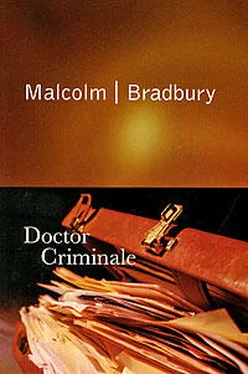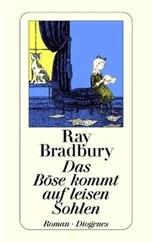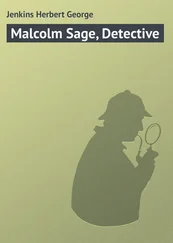Malcolm Bradbury - Doctor Criminale
Здесь есть возможность читать онлайн «Malcolm Bradbury - Doctor Criminale» весь текст электронной книги совершенно бесплатно (целиком полную версию без сокращений). В некоторых случаях можно слушать аудио, скачать через торрент в формате fb2 и присутствует краткое содержание. Город: London, Год выпуска: 2000, ISBN: 2000, Издательство: Picador, Жанр: Современная проза, на английском языке. Описание произведения, (предисловие) а так же отзывы посетителей доступны на портале библиотеки ЛибКат.
- Название:Doctor Criminale
- Автор:
- Издательство:Picador
- Жанр:
- Год:2000
- Город:London
- ISBN:978-0330390347
- Рейтинг книги:5 / 5. Голосов: 1
-
Избранное:Добавить в избранное
- Отзывы:
-
Ваша оценка:
- 100
- 1
- 2
- 3
- 4
- 5
Doctor Criminale: краткое содержание, описание и аннотация
Предлагаем к чтению аннотацию, описание, краткое содержание или предисловие (зависит от того, что написал сам автор книги «Doctor Criminale»). Если вы не нашли необходимую информацию о книге — напишите в комментариях, мы постараемся отыскать её.
Doctor Criminale — читать онлайн бесплатно полную книгу (весь текст) целиком
Ниже представлен текст книги, разбитый по страницам. Система сохранения места последней прочитанной страницы, позволяет с удобством читать онлайн бесплатно книгу «Doctor Criminale», без необходимости каждый раз заново искать на чём Вы остановились. Поставьте закладку, и сможете в любой момент перейти на страницу, на которой закончили чтение.
Интервал:
Закладка:
As he walked on, Gerstenbacker began a kind of continuous commentary: ‘Here once were the city walls where we defended Europe against the Turk. Then our Habsburg monarchs, who ruled so much of the world, decided to make an imperial city. First do you see the university. One day you must go inside and see the hall where are displayed all our great professors.’ ‘Of course,’ I said. ‘There the Burgtheater, there the Parliament building, here the Rathaus,’ said Gerstenbacker, ‘This is Vienna.’ Outside the Rathaus, a Christmas street market was in progress. The chestnut sellers and the sausage fryers were all out; there were stalls stacked with elaborate ribboned candles, peasant woodcarving, great piles of gold and silver baubles, bags of biscuits. I stopped to witness a triumph of kitsch: a stall covered entirely in pink fabric and laden with thousands of pink toy rabbits. A fair-haired very pretty girl stood behind the counter, in a pink rabbit costume; she was teasingly running a rabbit glove puppet up and down her arm to tempt the children crowded round her to buy. ‘Isn’t that wonderful?’ I said, turning to Gerstenbacker; he had gone. Then I saw him, yards ahead, still striding briskly onward. ‘In front the Nature History Museum, then the Art Historical Museum, opposite the Heldenplatz . . .’ he was still saying, to no one in particular, as I caught him up.
Now certain memories began coming back to me. Helden-platz, the great square outside the Hofburg; wasn’t this where Adolf Hitler had addressed a cheering Austrian crowd when he dropped his troops, dressed as nuns, into the country in 1938? Well, now it was where all the tourists, mostly Japanese and American, gathered. Their great modern tour buses, equipped with central heating, toilets, kitchens, television sets, a home on wheels, stood lined up in rows. Landau drivers sat waving their whips over their horses and calling for customers. Great tour groups eddied here and there, herded by umbrella-waving female Austrian guides, evidently a formidable breed in their dirndls. ‘Hello, hello, my name is Angelika, do you like it?’ said one in English, steering a party of tired elderly Americans. (A round of applause.) ‘Yes, I think you do. Notice please my pretty dirndl, very typical, do you like it too?’ (More applause from party.) ‘Yes, you do.’
I stopped to listen. ‘Well, we make very nice tour today, the Hofburg, Schonbrunn, then the Blue Danube, very nice, ja?’ (More applause from party.) ‘I hope you know our Habsburgs, you remember the Empress Maria Theresa? Even if a woman she kept our empire great for many many years.’ (Murmurs of assent from party.) ‘Then, do you know, things went a little wrong for us. You remember the tragedy of Mayerling in 1889?’ (Murmurs of assent from party.) ‘Yes, of course you do, the young Archduke Rudolph and his pretty little Baroness Maria Vetsera, who died with him in his bed at the hunting lodge, ja?’ (Murmurs of sympathy from party.) ‘After this nothing went right for us. And yet you know those were our most brilliant times? And that is what we say about Austrians. The more things went wrong, the more we learned to be so modern and so gay!’ (Loud applause from party.)
There was a sharp tug at my sleeve. It was Gerstenbacker, and he did not look so modern and so gay. ‘Oh yes, 1889, when we learned to be so modern and so gay!’ he said, walking me off to the entrance to the Hofburg, ‘But I hope a little bit more critical and analytical than this. To be modern is not always so amusing, I think.’ He took me inside, and we went round the great complex of state rooms, the imperial fixtures, the regalia and the treasure chests. ‘The Emperor Franz Josef, he was not so modern,’ said Gerstenbacker, ‘Here in the Hofburg he refused most things: the telephone, the toilet, the electricity light. Until he died and his age too, this place was lit only by torches. I will show you the Capuchin crypt where the Habsburgs were buried. Of course first they took out their hearts and put them in another place.’
‘Franz Josef was not so gay either,’ said Gerstenbacker, as we went down to the crypt, ‘He lived here in one room and watched his empire fall to pieces. Because you know here was made a great dream of a glorious Europe. Once, you understand of course, we were Europe.’ We had Spain, the Nederland, Italy, the Balkans. All run from here. Not the crypt, of course, upstairs, where is Waldheim now.’ ‘Oh, is he?’ I asked, ‘The great forgetter.’ ‘Well, some things we remember, some we forget,’ said Gerstenbacker, ‘Yes, here was the Emperor, the archdukes, the courtiers, the diplomats. The bureauarats, the policemen, the apparatus, the files, the rules of law, and trade, and censorship.’ ‘It all sounds a bit like Brussels now,’ I said. ‘The same,’ said Gerstenbacker, ‘The European Community, you know we will join very soon. I believe we have some experiences that would be useful.’ ‘I’m sure you do,’ I said. ‘Good, now you have seen some of our past, next I will show you some of our modern,’ said Gerstenbacker, checking his piece of paper, ‘In fact I will show you everything.’
And sure enough, over the course of the next hours, Gerstenbacker did exactly that. He showed me as much of everything as time and the human frame would permit. He showed me gothic, the church of darkness and mystery, and he showed me baroque, ! the church of light and joy. He showed me Biedermeier, the art of the bourgeois, and he showed mejugendstil, the art of dissent. He showed me Calvinism; he showed me the New Eroticism. He showed me Egon Schiele and he showed me Gustav Klimt; he showed me Salome and he showed me Judith. He showed me the Café Central where Trotsky used to sit and reflect, he showed me a table used by Krafft-Ebing, he showed me the home of Gustav Mahler. He showed me the consulting rooms of Sigmund Freud at Berggasse 19, its contents mostly disappeared, where sex-shocked patients once used to lie among portraits of Minerva and pictures of Troy. He explained to me things that were there, things that had once been there, and even things that had never been visibly there but came nonetheless. For he briefly took me out of the city and into the Vienna Woods, where Freud had once bicycled, and where a plaque among the trees read very simply: ‘Here, on July 24, 1895, the secret of dreams revealed itself to Dr Sigm. Freud.’
And all the time, as we toured the city, getting on a tram here and taking a taxi there, I tried to encourage perfectly pleasant young Gerstenbacker to talk to me about Bazlo Criminale. There was no obstruction; he seemed totally willing. Yet always, it seemed, there was some absolutely necessary diversion or other. ‘Look, tell me, do you have any idea where Criminale stays or who he sees when he visits Vienna?’ I would ask. ‘You think he comes to Vienna?’ he would say. ‘Professor Codicil said he comes to Vienna,’ I would say, ‘He said it was one of his homes from home, you remember.’ ‘Homes from home, not home from homes?’ he would say, ‘By the way, do you like to see a building with a cabbage on the top of it?’ ‘Homes from home,’ I would say, ‘What do you mean a building with a cabbage on the top of it?’
‘It has a cabbage on the top of it.’ ‘Why does it have a cabbage on the top of it?’ I would ask. ‘It has a cabbage on the top of it because of course Josef-Maria Olbrich put it there.’ ‘Who did?’ I asked. ‘Olbrich, don’t you know him? The friend of Otto Wagner? They all wanted to make a great Secession together.’ ‘I see,’ I said, ‘So when Criminale comes to Vienna, where does he stay?’ ‘I don’t know,’ he would say. ‘Who are his friends?’ I would ask. ‘Does he have some?’ he would say. ‘I expect so,’ I would say, ‘You’ve never met him?’ ‘I, of course not,’ Gerstenbacker would say, ‘I think the Secession was really where the Viennese baroque shook hands with Viennese modernism.’ ‘We’re back to the cabbage, are we?’ ‘Don’t you like to see it? It is very famous.’ ‘All right, Gerstenbacker,’ I said at last, ‘Let’s go and see a building with a cabbage on the top of it.’
Читать дальшеИнтервал:
Закладка:
Похожие книги на «Doctor Criminale»
Представляем Вашему вниманию похожие книги на «Doctor Criminale» списком для выбора. Мы отобрали схожую по названию и смыслу литературу в надежде предоставить читателям больше вариантов отыскать новые, интересные, ещё непрочитанные произведения.
Обсуждение, отзывы о книге «Doctor Criminale» и просто собственные мнения читателей. Оставьте ваши комментарии, напишите, что Вы думаете о произведении, его смысле или главных героях. Укажите что конкретно понравилось, а что нет, и почему Вы так считаете.











